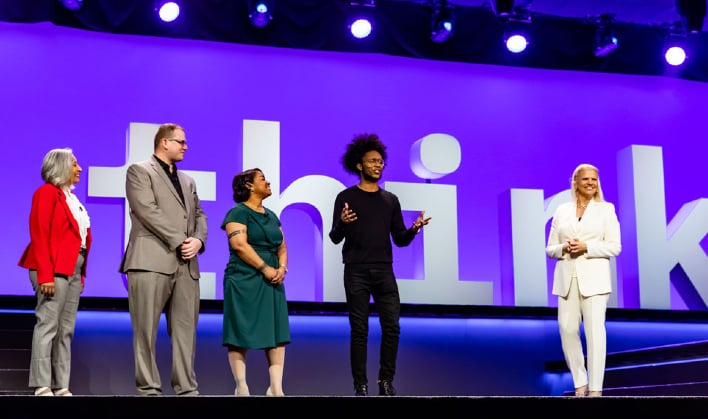Tech Dinosaur IBM Allegedly Had The Gall To Label Older Employees 'Dinobabies' And Mark Them For Extinction

When one thinks of International Business Machines Corporation, better known simply as IBM, they may call to mind such things as IBM's super computer, Watson. And in recent news, IBM announced a joint effort with tech giant Samsung that could produce a chip that allows a smartphone to last a week on a single charge. But it is something far less praiseworthy that has IBM in the headlines as of late.
Last Friday, the Federal District Court made public previously sealed documents that contained emails from IBM executives. The emails, contained in a partially redacted court filing, expose executives discussing how to force out older employees and disparaged them by calling them dinobabies who should be made an "extinct species". At the time of the emails, the IBM officials are said to have been in the company's "highest ranks," according to the filing.
Shannon Liss-Riordan, a lawyer for the plaintiff in the case, stated, "These filings reveal that top IBM executives were explicitly plotting with one another to oust older workers from IBM's work force in order to make room for millennial employees." Liss-Riordan represents hundreds of former IBM employees in similar claims.

But an investigation by the Equal Employment Opportunity Commission found IBM's practices may not have been as innocent as Pratt and IBM want people to believe. The EEOC released a summary of its investigation that in part said, "top-down messaging from IBM's highest ranks directing managers to engage in an aggressive approach to significantly reduce the head count of older workers." The agency has not publicly released evidence supporting its claims as of yet.
Companies seeking to unload their older workers in exchange for younger employees is not anything new. Older workers tend to make more, and often are more savvy and experienced in negotiating raises. This often makes hiring younger workers more appealing, as companies try to find ways to lower costs to appease stockholders. But for IBM, it could also be a way to try and stay relevant in an ever increasingly competitive market space.

